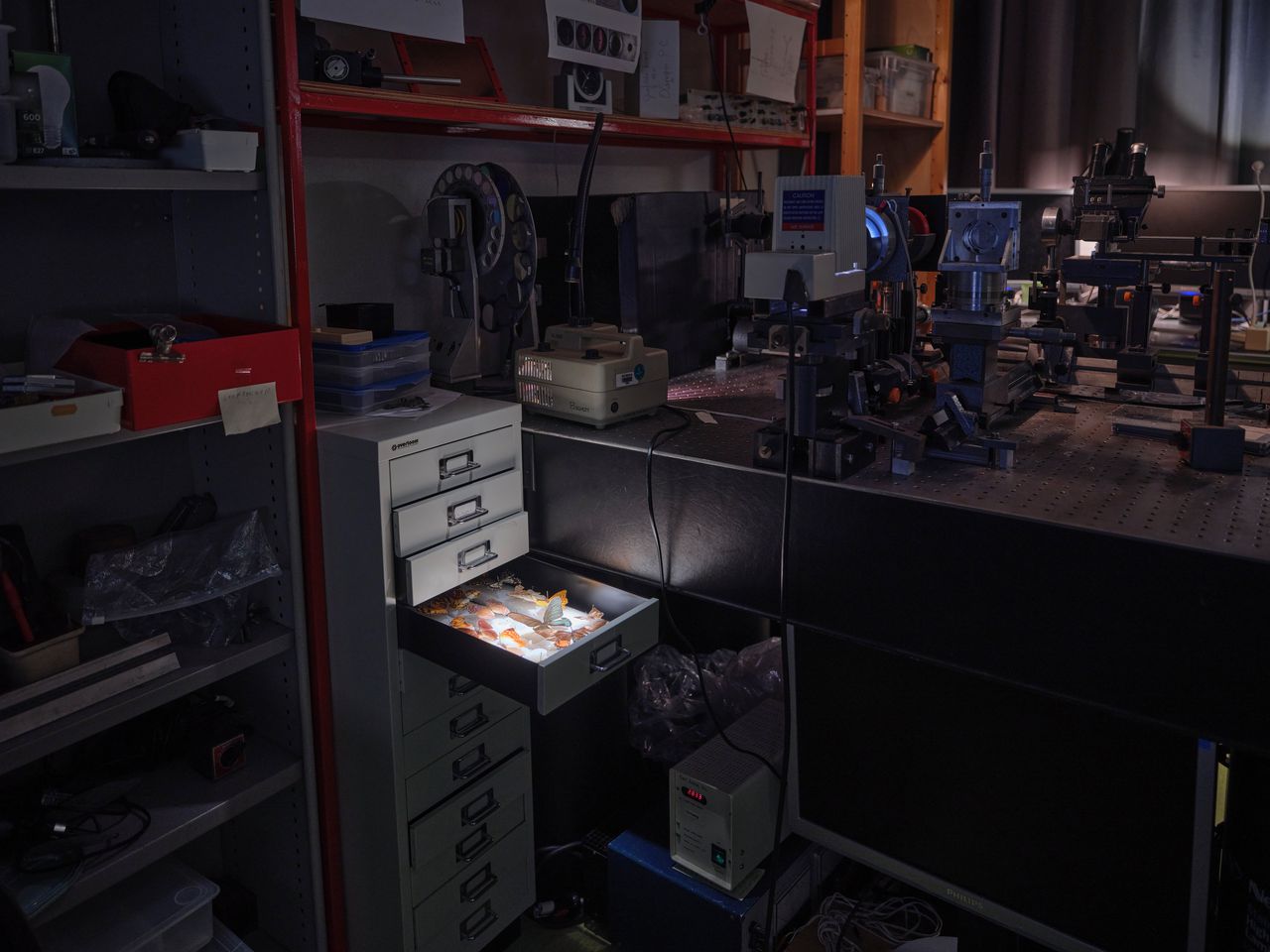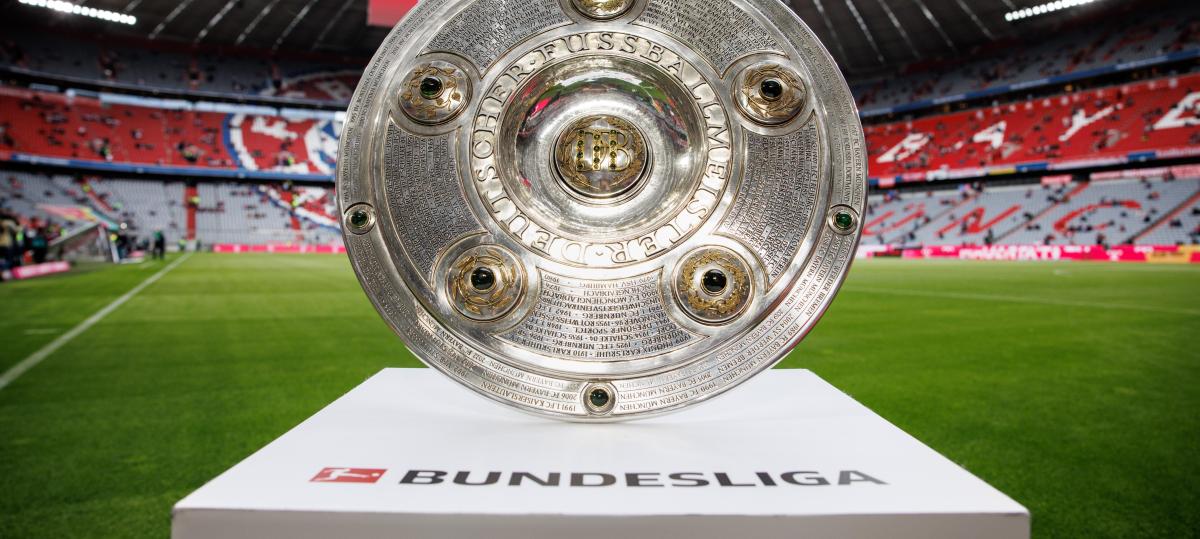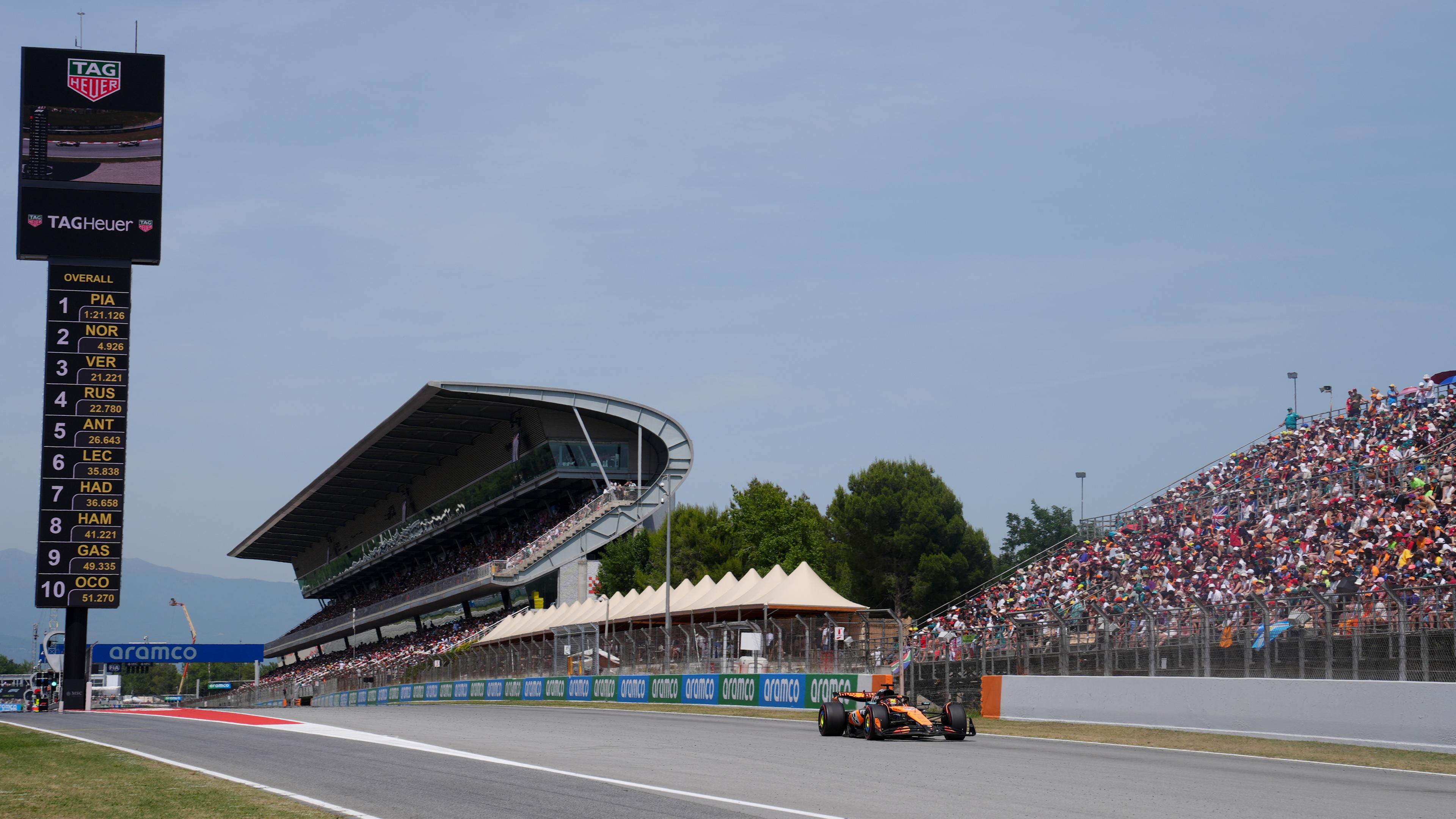Does Brussels choose the Bazooka against Trump or to do it for nothing? Four options for the next move in the trade war
:format(webp)/s3/static.nrc.nl/images/gn4/stripped/data130727974-d2e2bd.jpg)
What exactly does Donald Trump want? The European Union breaks its head about that question. The American president is so far not willing to further reduce import duties. His team does not only release little on the outside world. Also indoors rooms, the European Commission, which conducts the negotiations, hardly gets a grip on the counterparty.
The European Commissioner for Trade, Maros Sefcovic, was in Washington early this week. It was his third visit this year, but it didn’t yield a deal yet. « We need to hear more from the Americans, » said a committee spokesperson on Tuesday in Brussels. « We need a better idea of what they have in mind in these negotiations. »
Last week, Trump paused his most far -reaching ‘reciprocal’ taxes – from 20 percent – on goods from the EU to the summer. But EU goods still have to do with one baseline-Tax of 10 percent. For steel, aluminum and cars, higher levies apply and such extra taxes appear to be made for the chip sector and the pharmaceutical industry.
To show goodwill, the announced countermeasures also disappeared from the EU for the time being in the refrigerator. They would have started otherwise on Tuesday, but just like Trumps taxes were postponed until the summer. In the meantime, European negotiators hope to reach an agreement.
But the question is whether it is possible to satisfy Trump and his rating team. There not only criticizes the import duties that the EU uses to the port, but also on other alleged trade barriers, of rules that protect food quality into VAT.
After his visit to Washington, European Commissioner Sefcovic repeated his willingness to conclude an agreement. But also, just like Commission President Ursula von der Leyen, he is willing to hit with his own taxes. What resources does Europe have at its disposal?
Read also
The four major uncertainties in which Trump collapses the world economy
1. More taxes
The first package was carefully compiled by the European officials. First of all, it had to be an appropriate response to the first taxes from Trumps tube, the steel and aluminum taxes. That succeeded: it became a laundry list with a commercial value of around 20 billion euros.
Additional wishes were added. To limit the damage for Europe, it was searched for goods for which new suppliers could be found elsewhere. At the same time, the measures had to inflict as much political pain as possible. The logic is this: if you get the politicians who have Trump’s ear the hardest, the chance that the president will take back gas is greatest. That is why not only classics such as motorcycles and jeans, but also playing cards are on the list: they are produced on a large scale in Kentucky, the home of the Republican Senator Mitch McConnell.
Only: the question is whether this careful tax -okupuncture is an option if the EU wants to expand its counter -offensive. The American 10 percent tax affects the majority of all European exports to the US, with a added value of 380 billion euros-almost twenty times the size of the now paused European counter package.
If Europe still imposes its first counterparts, the question is what follows next. « I think Europe is more or less through the goods that we can find to hurt Republican Congressmen, » says chief economist Sander Tordoir of the Center for European Reform. Moreover, the resistance from the European capitals will increase if a larger package is discussed. After all, then countries fear that Trump will again be overtook with an even greater counter package, where every country is afraid of becoming harder than the rest.
In the creation of the first package, countries such as Italy and France were already in the gun against a levy on whiskey, because Trump had threatened with a towering levy on wine and champagne. The greater a package of targeted levies, the greater the chance that this kind of differences differ to cracks in European unity.
2. The Bazooka
It has been buzzing in Brussels for a while: is the EU going to use the Bazooka if the trade war escalates? The Bazooka in question is the so -called anti -cutting instrument. The EU recently recorded this brand new weapon in its arsenal, partly because of the pests that Trump handed out to trading partners in its first term. If the behavior of another country is qualified as a coercion, the committee has since been able to intervene hard to repent the culprit.
For example, Brussels can decide to no longer prosecute violations of American patents and copyright – internet piracy then becomes legal in practice. In addition, the EU can impose taxes or fines on tech companies faster and they can give American companies a slap by denying them access to the lucrative market of public tenders in the EU.
« This instrument was actually designed as a gun that you remove from your pocket and put on the table during negotiations, » says Arthur Leichthammer of the Jacques Delors Center. « Not to actually fire it. » Nevertheless, the call is to do that now.
Von der Leyen seems willing to go far. « We have a wide range of countermeasures (…) if the negotiations do not lead to a desired result, » said the committee chairman on Friday An interview with the Financial Times. As an example, she suggested the introduction of a European tax on the advertisements of tech companies.
When the EU uses the antidwang instrument, the conflict escalates far beyond the trade world and are obvious against actions
The risk speaks for itself: if the EU uses the anti -cutting instrument, the conflict escalates far beyond the trade world and are obvious counteractions. The committee therefore seems to want to do everything to leave the Bazooka where it belongs: in the pocket, unused.
3. Concessions
In addition to the stick of harsh threats, the EU wants to continue to offer a root. Sefcovic, the European Commissioner, has now proposed several times to delete the taxes on cars and other industrial goods on both sides. That is intended as a big gesture: it is sensitive to European car makers, who expect more competition from the US.
But according to the Americans, the formal taxes are only part of the problem. Trump criticizes, among other things, the VAT levy and the regulations for tech platforms, even though they both also apply to European companies. Peter Navarro, one of Trumps trade advisers, is angry about the import ban on meat from cattle treated with hormones.
The committee is willing to talk about all kinds of trade barriers, a spokesperson said on Wednesday, but the protection of food quality is « holy. »
Trump did have an earlier offer from the European Commission: an initiative to import more liquid gas (LNG) from the US. Trump has indicated that the taxes can take off the table, but only if the EU countries purchase no less than 350 billion euros in LNG. After all, a trade deficit is no longer the case.
The problems start there. The advantage of LNG is precisely for the EU that it can get its energy from many different sources and not become too dependent on one producer. Then a large deal with the US, which is already the largest LNG supplier, is undesirable.
Moreover, American oil and gas will soon be won less clean if it is up to Trump, which goes against European climate plans. And there is a practical problem: the European Commission does not buy LNG itself. The committee can facilitate the purchase and transport, but the question is on what scale that can happen.
4. Ignore
And what if Europe just keeps peace and does not escalate? « I am not saying that we should not do anything, but I doubt that we should repay each with the same currency, » says economist Cinzia Alcidi of the Center for European Policy Studies. Take a look at China, she says: That country hit hard and then got even heavier taxes for his molars.
The tax break was already celebrated by European policy makers as a success of the calm approach to their drivers, combined with the unrest that arose within the US. According to Alcidi, it is quite possible that a further de -calation will also be mainly due to domestic forces in the US, a process on which the EU has little influence. « Let the time do its job and first see how this unfolds in the US, » says Alcidi.


/s3/static.nrc.nl/images/gn4/stripped/data133101536-0efed2.jpg)
/s3/static.nrc.nl/images/gn4/stripped/data133096449-edad17.jpg)



